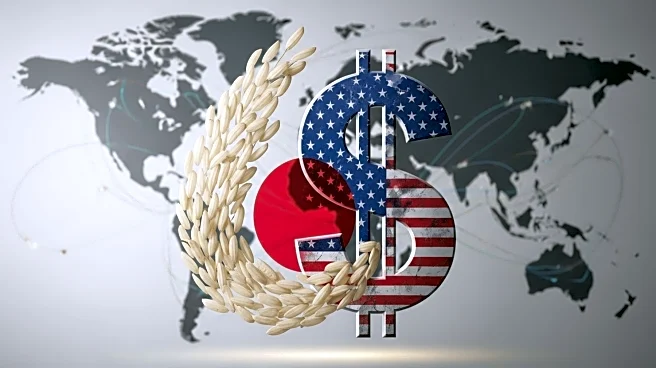What's Happening?
The U.S.-Japan rice dispute has become a significant issue in the economic relationship between the two countries, affecting investment flows in agriculture and trade infrastructure. A trade agreement in July 2025 reduced U.S. tariffs on Japanese imports to 15% and increased U.S. rice exports to Japan by 75%. Despite initial stabilization, the Trump administration's demand for further rice import increases was rejected by Tokyo, highlighting tensions over protectionism and market access. This situation presents both risks and opportunities for investors in agribusiness and alternative food markets.
Why It's Important?
The dispute underscores the complexities of international trade agreements and their impact on domestic policies. U.S. agribusinesses benefit from expanded market access, while Japanese farmers face challenges from subsidized U.S. imports. The $550 billion Japanese investment in U.S. sectors like semiconductors and energy reflects a strategic balance between agricultural and industrial interests. This dynamic affects supply chain resilience and creates arbitrage opportunities, as Japanese firms import U.S. rice at lower costs and resell it domestically.
What's Next?
The ongoing dispute may lead to further policy shifts and trade negotiations. Japan's cancellation of a key trade negotiation trip indicates its commitment to protecting agricultural policies, potentially delaying broader economic cooperation. Investors must monitor these developments closely, as changes in trade policies could impact market volatility and open new opportunities in alternative food markets.
Beyond the Headlines
The rice dispute has prompted innovation in alternative food markets, with Japan exploring wheat-based alternatives and plant-based proteins due to domestic rice price crises. Policy-driven shifts, such as Japan's Acreage Reduction Policy, complicate the landscape, requiring investors to adapt to evolving trade environments.










